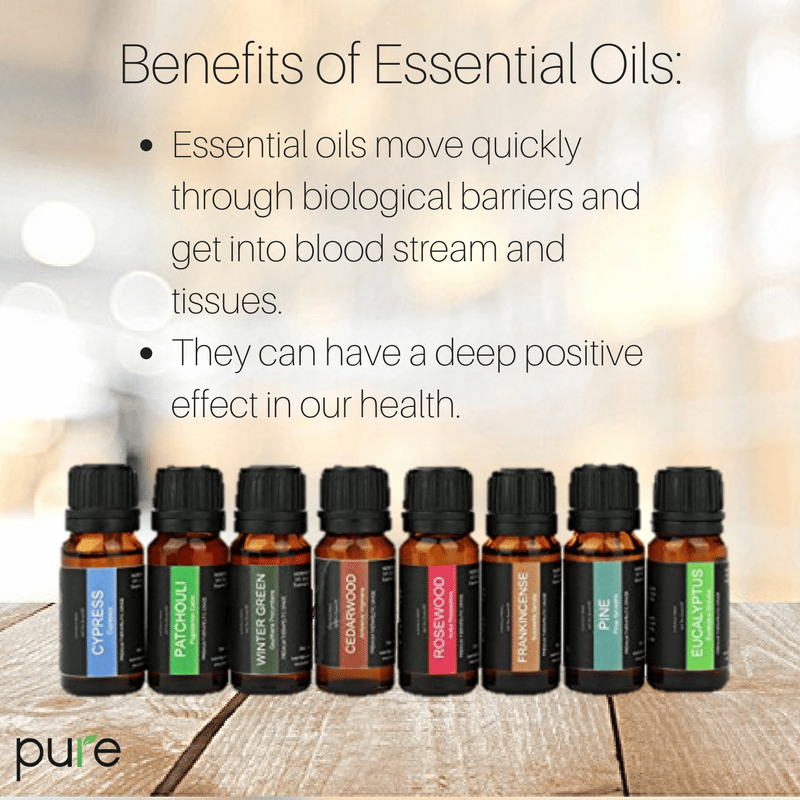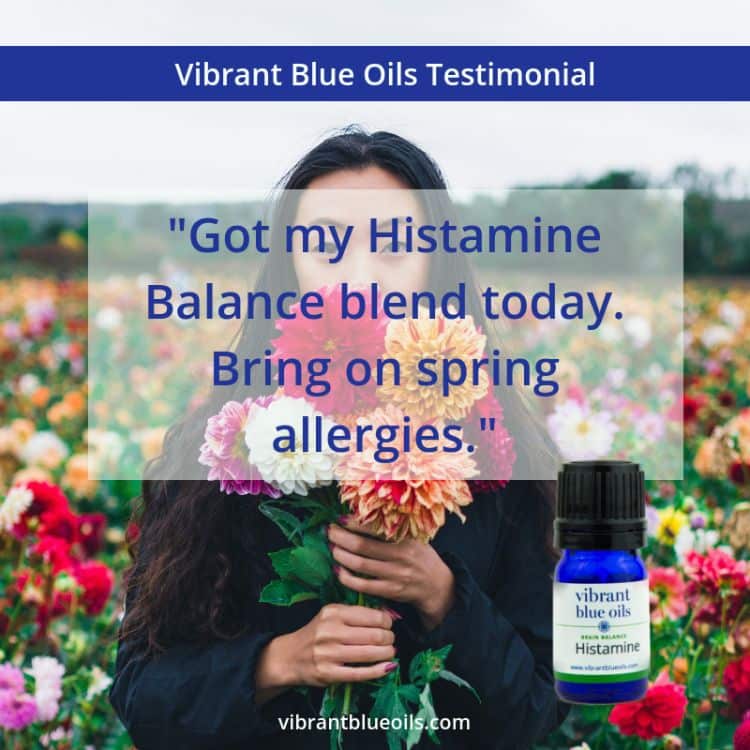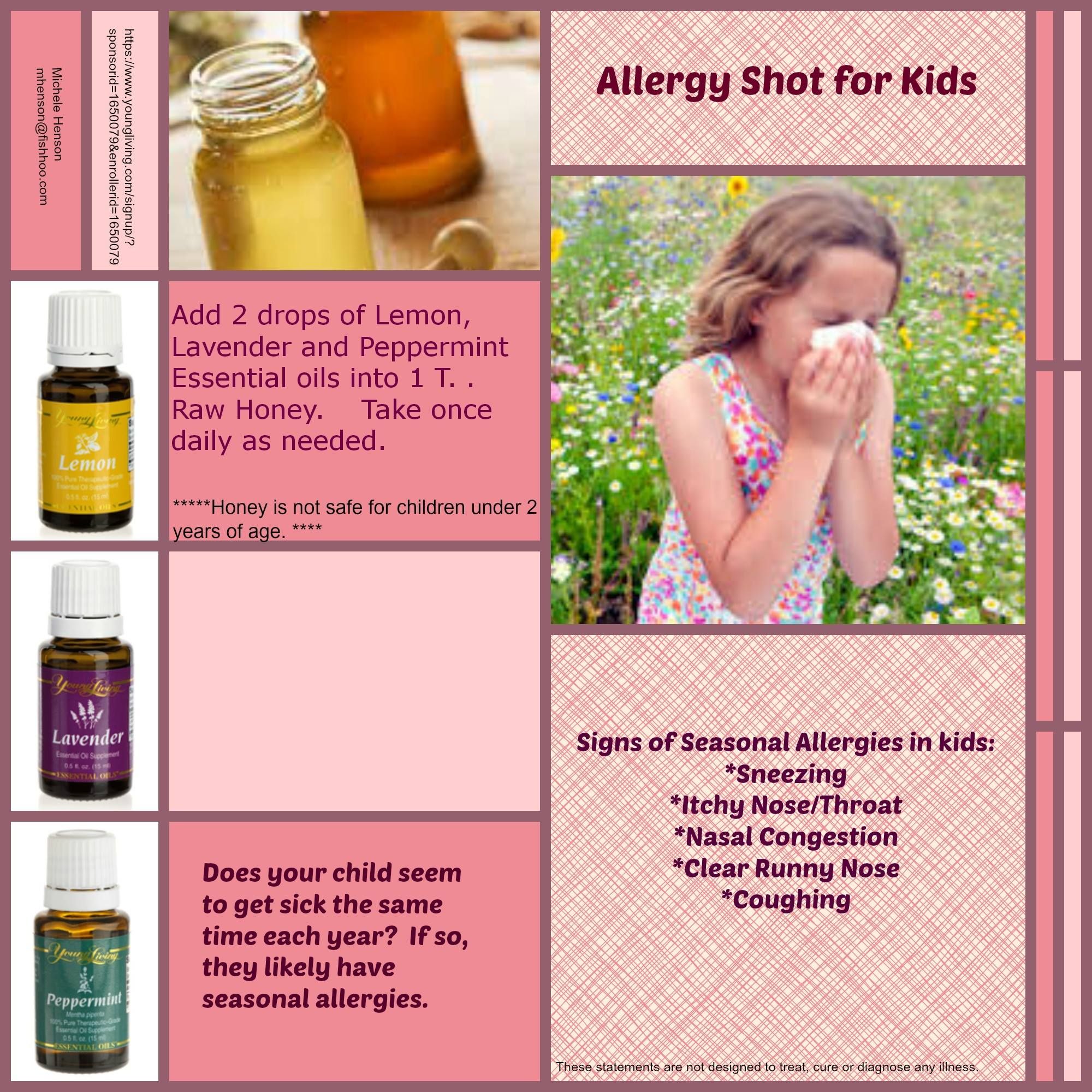Essential Oils For Allergies: 4 Blends To Make
Please read my Essential Oil Common Sense Safety page before using this or any essential oil recipe. I am not a medical professional and the information presented here is merely for educational purposes and not intended to replace medical advice. It is your responsibility to do your own research, consult with your medical provider, and make safe decisions for yourself and your family.
A note on the best essential oil brands: there are many high-quality brands available and you dont have to join an MLM either. Im not against MLMs Ive used them myself, but Ive seen just as good quality of essential oils from other brands too at more affordable prices.
It is important that you use high-quality essential oil as some cheap essential oils contain additives and less-than-helpful plant species. This may leave your allergy blend ineffective or worse, with side effects. Check out this post on how to choose the best essential oil brand for your family.
A note on dilution Remember, essential oils are very potent. Always use smaller amounts to start with, especially if you choose to use any of these blends with children. You may choose to increase the number of drops of essential oils slowly if you are not seeing the desired results.
What Essential Oils Are Good For Allergies
Luckily, certain essential oils are safe natural home remedies that are not only highly effective and powerful enough to quickly relieve your allergy symptoms, but also boost your immunity too
- They help fight inflammation – the underlying cause of most allergies.
- They can soothe, calm most of your allergy symptoms – and fast.
- They strengthen your immune system so its less likely to react to harmless intruders.
- They clear and block allergens from entering both your body and home.
Depending upon the time of the year or the symptoms you are experiencing, blending two or three oils will strengthen the benefits in the fight against your allergies. For instance, while the best essential oils for seasonal allergies are eucalyptus, peppermint, frankincense and lemon, you might want to add lavender to the mix if youre struggling to sleep. And if youre treating a skin allergy, then lavender, tea tree and chamomile are your best bets.
Stay Healthy. Essential Oils To Naturally Boost Your Immunity When It Needs It the Most Read More
What Can You Do
There are plenty of antihistamine products available over the counter or from you Doctor to help to treat the allergy. But it is also possible to treat the symptoms with plant essential oils natural compounds that have few side effects.
Here are a few that you could try:
- Eucalyptus this aromatherapy oil is wonderful for all things to do with lungs and breathing. It can ease the inflammation in the lungs caused by the allergy and make breathing easier
- Rosemary has mucolytic properties, which means that it this helps to alleviate congestion
- Lavender a natural antihistamine, this oil is soothing and can reduce irritation and relax breathing
- Lemon this oil is anti-inflammatory for the respiratory system, improves immunity and is also antibacterial
- Chamomile an anti-inflammatory relaxant which soothes and builds your pollen reaction
- Peppermint this essential oil really helps open up the nose and also relieves headaches resulting from stuffed sinuses
- Tea Tree a natural choice for anti-allergy and building immunity
Recommended Reading: How To Avoid Allergies In Spring
What Is An Allergy
An allergy is an overactive immune response in your body to certain substances that are usually harmless. The response of the immune system is to release histamine that causes inflammation and irritation in your airways, eyes, ears and skin.
According to doctors on WebMD, common allergies are:1
- Seasonal allergies like allergic rhinitis which is caused by pollen, grass, weed, and molds
- Cat and dog dander allergies caused by substances in pets hair and fur
- Food allergies to nuts, shellfish, and dairy products
The American Association of Allergy, Asthma & Immunology says that smoke, strong odors, and changes in air humidity can also cause allergic rhinitis which results in inflammation in the nasal passages. The allergic response can also cause allergic conjunctivitis .2
Expert in immunology, Dr. Luqman Seidu says that typical symptoms of an allergic reaction are: itchy or watery eyes, hives, sneezing, rashes, fatigue, an itchy or a runny nose.3
Here are the top 15 essential oils for allergies that can help you treat the common symptoms of allergic reactions. At the end of the article, you will find instructions on how to use these essential oils to get allergy relief.
How Essential Oils Can Help

Essential oils have many therapeutic benefits that have been used for numerous health conditions like allergies and asthma. Many essential oils contain properties that help soothe the bodys immune systems reactions and inflammatory responses. These essential oils for allergies work by easing the symptoms that accompany seasonal allergies or hay fever. They can aid in making the seasonal transition experience an overall more bearable and comfortable one. One can also try our essential oil blends for allergies to experience a mixture of different essential oil scents and benefits. Our essential oil blends combine the best single allergy essential oils to create versatile and multifaceted oil blends that attend to many aspects of allergy care, from allergy relief to immunity support, to symptom prevention.
Read Also: Does Claritin Work For Food Allergies
Its The Time Of The Season
Essential Oils for Allergies
Ahh, spring is in the air! The beautiful weather of spring flowers are blooming, birds are chirping, the air is crisp, and the weather is getting warmer. Spring is the perfect time to spend more time outdoors. Yet, for many people, spending more time outdoors, is accompanied by itchy, watery eyes, runny nose, sneezing and coughing, all brought on by seasonal allergies.
Many people suffer from allergies, some year round and some just seasonal. When an allergen enters the body, the immune system sees it as an invader and overreacts, releasing something called Immunoglobulin E antibodies. These antibodies travel to cells that release histamines and other chemicals that trigger the inflammatory response in the body, hence, the allergic reaction.The most common causes of allergies include pollen, dust, mold, insect bites, animal dander, food, medications, and latex. All of these allergens can trigger symptoms in the nose, throat, lungs, ears, sinuses, the lining of the stomach, or on the skin.
People who suffer from seasonal allergies are allergic to pollen, trees, grass, weeds, fungi and mold spores. Tree pollen these tend to affect people in the spring. Grass pollen these tend to affect people later on in the spring and also in the summer. Weed pollen these are more common during autumn. Fungi and mold spores these are more common when the weather is warm
Essential Oils to the Rescue
Which oils do I use and how do I use them?
Email:
Fighting Allergies With Natural Remedies
As you now know, there are plenty of different essential oils that are beneficial for seasonal allergies, and many ways to utilize them. Stock up on a few different oils and experiment with them or ask an aromatherapist for suggestions to figure out which essential oil and which method of use works best to relieve your symptoms and remember, many of the same oils can also help with general health and wellness. Soon enough, youll be able to experience relief and live your life without worrying about allergies ruining your day.
Read Also: Do Allergies Make Your Throat Hurt
Frankincense Essential Oil For Spring
Frankincense essential oil for spring will help calm inflammation, pain, and bloating on the skin. The essential oil supports great wound/cut healing and diminishes the appearance of scars. This essential oil makes skin n nourished and bacteria free.
Frankincense essential oil eases respiratory discomfort and inflamed nasal passages. This essential oil helps in easing feelings of stress and anxiety from within. The essential oil encourages the relaxation of body muscles and enhances immune function.
Thyme Essential Oil For Spring
Thyme essential oil for spring helps reduce and calm the risk of inflammation and protects it from harmful bacteria. You can use this essential oil during the spring season to make your skin nourished and protected from skin irritations.
Thyme essential oil eases respiratory discomfort, too, and promotes easy breathing. This essential oil helps to protect the skin from external infections, fungi, and viruses. The essential oil is known for its soothing fragrance that relaxes the mind and reduces joint pains.
You May Like: Does Claritin Help With Pet Allergies
Foods We Consume & Inflammation
Unfortunately, a lot of the food that we enjoy can be inflammatory to our bodies. In our fast-food culture, inflammation from our diets is becoming more widespread across the country.
This inflammation can encourage the allergic response that seasonal allergy sufferers are all too familiar with. You can use peppermint oil to soothe inflammation both topically when mixed with a carrier oil and in the sinuses when diffused.
Your Body And Histamines
Your body produces histamines as a defense mechanism, but in the case of allergies, your body is typically reacting inappropriately to things like pollen and dust mites.
We also hear the term antihistamine thrown around a lot when it comes to allergies. Antihistamines are just that blockers of those little histamines that enter your body with allergens.
When it comes to antihistamines, we can go the route of medication or we can choose natural allergy remedies that produce similar effects. With an emphasis on a natural lifestyle and holistic health, many may choose essential oils as their natural antihistamine of choice.
A lot of people shy away from antihistamine medications because of the unpleasant side effects. Dry mouth, dizziness, nausea, and confusion are just a few of the listed side effects of using over-the-counter antihistamines.
Long-term use of antihistamines for allergies may even produce a withdrawal effect when the season for allergies is done.
Don’t Miss: How Did Peanut Allergies Start
What Gets Rid Of Allergies Fast
Seasonal allergies are bodily reactions that people typically have to life their lives with. These allergies come up seasonally with the changes in weather. Using an antihistamine is your best option when wanting to clear up symptoms of allergies quickly, however, if you are looking for a more natural solution to your allergies, essential oils may be able to help. Consider using lemon oil, tea tree oil, peppermint oil, eucalyptus, or frankincense oils to find relief.
Using Essential Oils For Seasonal Allergies

Essential oils are a great solution for seasonal allergies! There are many essential oil options to use, many ways to use these wonderful oils, and they are a more natural option for treating seasonal allergies.
We went through some of the more popular essential oils for allergies above, but here are a few common allergy symptoms and oils that can remedy them.
Read Also: Can You Take Nyquil With Allergy Medicine
Here Are Some Popular Carrier Oils:
Essential oils are extremely potent and can cause irritation if they are not adequately diluted. Use caution, go slow, and you will have a good essential oil experience.
Coconut oil is a popular choice because it also contains natural antimicrobial properties, making it a good option for treating skin allergies.
Jojoba oil is another good choice for a carrier oil to use as you are treating your allergy symptoms. Not only does it have antibacterial properties, it is also commonly used in massage because it readily absorbs into the skin. Unlike coconut oil, which can leave a layer on the skin, jojoba does not typically leave residue after application.
Gather your oils, make your allergy combinations, and youll be ready for the forthcoming allergy season! Be sure to check out some of our sources below for more in-depth research on the effects of essential oils on allergies.
Symptoms Of Seasonal Allergies
Seasonal allergies aka allergic rhinitis or hay fever can cause several uncomfortable symptoms.
Your body releases chemicals when youre allergic to something in the environment.
These chemicals trigger the allergic response which is your immune systems attempt at protecting you from the allergen.
Seasonal allergy symptoms can differ from person to person, but common allergy symptoms include:
What time of year you experience allergy symptoms depends on what youre allergic to.
Seasonal allergies commonly affect people in the spring, summer, and fall, when grass, trees, and other plants pollinate.
Some people experience winter allergies or even year-round symptoms.
Also Check: Can Honey Help With Allergies
What Are Allergies Caused By
What exactly are allergies? According to WebMD allergies or Allergic rhinitis, the medical term for hay fever happen when:
Your immune system overreacts to particles in the air that you breathe-you are allergic to them. Your immune system attacks the particles in your body, causing symptoms such as sneezing and a runny nose. The particles are called allergens, which simply means they can cause an allergic reaction.
Common allergy symptoms include runny nose, itchy, watery eyes, congestion, sneezing, coughing, sinus pressure and headaches. Some people may even experience symptoms like fatigue. Other common seasonal allergy symptoms include:
- Post-nasal drip
- Hives and skin irritations
Its important to pay attention and recognize what triggers your allergy symptoms so you can take steps to minimize symptoms. Left untreated, seasonal allergy symptoms can for some be quite miserable. While tree pollen and mold are two of the major spring allergy culprits, grass and weed pollen can be triggers as well.
For those who are really affected by seasonal allergies experts recommend avoiding allergens as much as possible. You can do things like keep your windows and doors shut in your home and in your car, limit the amount of time you spend outdoors and make sure air filters in your home are changed regularly.
Using Peppermint Oil For Allergies
How it helps: Anti-inflammatory, decongestant, antimicrobial, immunostimulant, analgesic
Best For: Hay fever, sinusitis, sinus headaches, stuffy nose, coughs, itching, red bumps
With its high menthol content and strong, fresh, minty scent, peppermint oil is one of the best in class when it comes to clearing up your sinuses almost immediately. Although not an antihistamine like other oils, its incredibly effective at opening up your airways and relieving a scratchy throat that can cause coughing. That being said, anything that can helps you breathe and feel better is more than welcome.
As an anti-inflammatory, it also works wonders for headaches caused by a build-up of sinus pressure. As an added bonus, it also provides much-needed relief for itching caused by allergies and insect bites because its so cooling, reduces swelling and soothes away any pain.
How to use peppermint oil for allergies
Chest rub: To relieve congested sinuses and a cough, mix 2 to 3 drops of peppermint, eucalyptus and lavender oils with 1 teaspoon of carrier oil and massage into the chest for a few minutes. Also apply to the temples and the back of the neck to ease a headache.
Diffuse: Use a mix of peppermint with lavender and lemon oils for relief from both allergy symptoms and sinus headaches.
Itching Relief: For immediate cooling relief, apply a mixture of 2 drops peppermint oil and 1 teaspoon carrier oil directly onto the allergy bumps or bites.
Also Check: Does Allergy Medicine Make Your Throat Dry
And Here’s How To Use Those Essential Oils
Essential oils are highly concentrated and should always be used with caution, says Noorda. Only the highest quality oils that are tested and marked as safe for consumption should be used internally.
And always dilute. If not diluted properly, essential oils can cause skin irritation, he explains. Discontinue use and consult your doctor if you experience redness, burning, or an allergic reaction.
Where To Apply The Best Essential Oils For Allergies
Essential oils are absorbed through the skin and into the blood system. If you have an occasion when it is difficult to be able to apply your essential oils directly onto the sinuses then know that if you apply them anywhere in the body they are going to start doing the job alone.
In these situations, apply diluted essential oils onto the inside of the wrist where you can see the good blood supply, on the blue veins, and although the oils obviously wont reach the sinuses as fast as if they would if you had applied it directly, they will still find their way through.
Read Also: Can Eyes Swell From Allergies
Best Essential Oils To Ease Your Allergies
Many people throughout the United States suffer from allergic rhinitis, or hay fever. Seasonal allergy symptoms, such as watery eyes, sneezing, runny nose, headaches, and an impaired sense of smell, affect around 40 to 60 million Americans. Other people have more severe allergic reactions, which can lead to life threatening responses, such as inflammation of the trachea and shortness of breath. Some treat allergies with a daily antihistamine pill or do their best to avoid triggers, but avoiding pollen can be nearly impossible during spring time. However, there are some essential oils that serve as a natural and safe way to treat allergy systems.
The way essential oils work against allergens is through their ability to reduce inflammation and act as natural antibiotics. Some oils even work to relieve respiratory conditions. Here are the top 5 essential oils that can help with allergy symptoms.
Uplifting Essential Oil Blends For Seasonal Allergies

Use 3-5 drops of up to 4 of the following suggested Essential Oils:
- Peppermint: try blending it with Orange, Grapefruit, and/or Bergamot
- Lavender: try blending it with Bergamot, Lemon, Lime, Orange, Grapefruit, Rosemary, and Ylang Ylang, Cedarwood, or Cinnamon
- Lemon: try blending it with Grapefruit, Orange, and/or Lime
You May Like: What Is The Best Antihistamine For Pet Allergies

